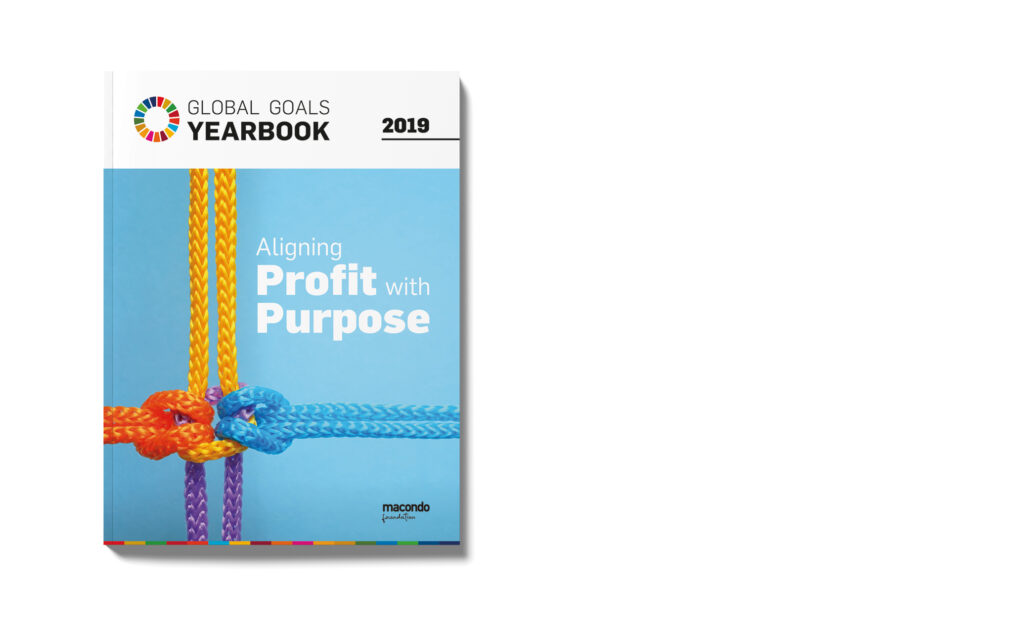Profit and Purpose – An (im)perfect match?

What are companies for? The rules for companies have changed. The focus is increasingly on their sustainable, social, and ecological impacts. The strategic orientation toward the so-called corporate purpose is decisive for profitable growth in the future.
This currently results in a large number of questions for businesses: How do you find an inspiring and future-oriented corporate purpose, and how can it be aligned in such a way that it brings profitable growth and social responsibility in concert? The new 2019 edition of the Global Goals Yearbook offers answers to these crucial questions thanks to its consistent orientation toward the UN Sustainable Development Goals and a competent editorial board and author pool.
The driver of development is to a large extent competition for the best minds. But it is not only the human resources departments that are pushing the topic. Experts speak instead of “inclusive capitalism” and urge that all stakeholders be taken along, including boards of management, customers, and even fund managers. Responsible businesses have governance structures that monitor and advise on environmental, social, as well as financial issues. When leaders understand and thrive within the broader social and environmental con- texts in which their businesses operate, it signals to employees, investors, and key stakeholders just how important purpose really is.
What is business for? What role does and should business play in society? To what extent should it perform a public purpose alongside its commercial activities? How should the aspirations of humanity, as set out in the Sustainable Development Goals, be reflected in the objectives of business? John Elkington, doyen of the sustainability community, together with Richard Roberts writes: “Being a little more ‘sustainable’ than your peers will do little to insulate a company from external shocks caused by extreme weather or extreme politics. So companies are going to have to step up to become much more active and effective agents of systems change, unless they are content simply to be passengers on a voyage captained by the ghost of Milton Friedman, which appears to be headed toward the mother of all icebergs.”
This realignment is taking place in turbulent times. Planning was yesterday. Today we are constantly exposed to new surprises, and the biggest uncertainty factor is politics. Is an era of instability beginning? Uncertainty is not good. It disturbs our planning. That is a significant problem for the economy, for entire societies, and for each individual. Growing levels of uncertainty mean that our picture of the future is becoming increasingly blurred, which has an impact on economic development. Citizens and businesses are holding back, purchases are being postponed, and investment plans are being cut back.
Climate change will have the greatest impact on those living in poverty, but it also threatens democracy and human rights, according to an UN expert. “Even if current targets are met, tens of millions will be impoverished, leading to wide- spread displacement and hunger,” says the UN Special Rapporteur on extreme poverty and human rights, Philip Alston. „We risk a ‘climate apartheid’ scenario, where the wealthy pay to escape overheating, hunger, and conflict while the rest of the world is left to suffer.”
Global Goals Yearbook 2019
Münster 2019: macondo publishing, 172 pages
ISBN: 978-3-946284-07-9
